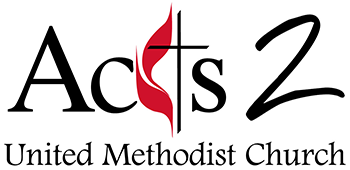It's easy to fall into the belief that we can find happiness in jobs and achievements, but when we seek fulfillment in those things, we find them unfulfilling and empty. In Philippians, Paul teaches that knowing Christ is of highest value, and when we live for him, we find a fulfillment the world cannot offer.
The things we worry about compete for mastery of our lives. When put God first, we are free from worry. When we trust God, we are free to leave the results of our obedience to our loving, merciful, glorious savior, Jesus.
Is the New Testament reliable? Rev. Brandon Blacksten explores the challenges of the New Testament's origins and consistency, and concludes that, ultimately, we can trust the New Testament account of the Good News of Jesus.
Homosexuality is the most divisive issue facing Christianity today. Of the more than 31,000 verses in the Bible, less than 8 potentially relate to homosexuality. Dr. Mark Foster explores these passages and casts a vision for a community that is grounded in the love of God, even in the midst of differences.
How do we understand violence and God in the Bible? Some Old Testament passages where God commands violence and genocide stand in stark contrast to Jesus new command to “Love one another as I have loved you.” Dr. Mark Foster is joined this week by three members of Acts 2 who are exemplary Christian military officers to make sense of violence in the Bible, in our world, and how we respond.
The Word of God is Jesus Christ, and the words of the Bible tell us about that Word. So what do we do when we don’t understand portions of the Bible? What do we do when we do understand and are appalled? Dr. Mark Foster helps us learn how to read and NOT read the Bible in Week 1 of our September Sermon Series, “Making Sense of the Bible."
In a world of “soundbites,” “headlines,” and “memes,” it can be difficult to get to the truth of what someone is saying. In this sermon, Dr. Mark summarizes the Sermon on the Mount covering the highlights of Matthew chapters five, six, and seven to allow us to hear the sermon as a whole. Jesus is not giving us advice or another set of restrictive rules. In the Sermon on the Mount, Jesus is teaching us that it is possible to become like Him in this life and live with him forever in the next!
We all experience worry—sometimes to the point that we can't think of anything else. But our worries can tell us what we truly treasure. Jesus teaches that when we learn to treasure what God treasures, we can let go of worry and find freedom.
One of the primary hinderances to our ability to connect with God is the desire for the approval of others. In the Sermon on the Mount, Jesus shares how to overcome this challenge and teaches us to live beyond the opinion of others.
Bible Text: Matthew 5:21-24 | Teacher: Dr. Mark Foster | Series: The Best Teaching You'll Ever Hear

